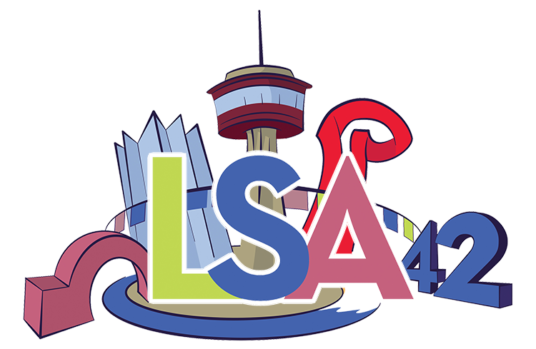A new report finds the Philadelphia has a chance to redefine itself as a true innovation center. Shutterstock
The time is now for Philadelphia to build a 21st-century economy, according to a new, extensive economic report showing the city is on the cusp of achieving (or missing) an opportunity to redefine itself.
Connect to Compete: How the University City-Center City Innovation District Can Help Philadelphia Excel Globally and Serve Locally, a report by the Bass Initiative on Innovation and Placemaking at the Brookings Institution released this morning, explored why Philadelphia is underperforming despite its size and significant advantages—ranking 51st in the country in advanced industries and 34th in new firm creation—and how it can better compete in a changing landscape for innovation and entrepreneurship.
The study examined Philadelphia’s emerging innovation district, which encompasses the western part of Center City and University City (specifically the area stretching from 17th Street to 43rd Street along the Market Street corridor, and south along the Schuylkill River to Grays Ferry). The 18-month analysis focused on the district’s economic strengths—it provides more than 104,000 jobs—quality of place, and proximity to infrastructure.
/cdn.vox-cdn.com/uploads/chorus_asset/file/8539541/shutterstock_368000588__2_.jpg)
“Philadelphia leaders have been missing a sense of collective urgency to determine the position the region should play in the global economy,” the report states, despite having the resources to succeed, including advanced research institutions, a talented and diverse workforce, and a nascent tech ecosystem.
While the report is specific to the Philadelphia metro area, it has great significance for cities across the nation, which increasingly view innovation districts, startup hubs, and similar new economy initiatives as key to building a 21st-century economy. The report suggests the following projects and initiatives to strengthen innovation in the nation’s sixth-largest metro, while improving equity and access:
Invest in the city’s advanced industry clusters, starting with precision medicine
Regional players should create a Precision Medicine Catalyst Initiative, a central organizing force that can bring together resources, such as learning institutions and investors, to turn the area’s research into cell and gene therapy into commercial opportunities
The district boasts a deep bench of talent, including University City Science Center—the nation’s oldest and largest urban research park— Drexel Ventures (an innovation fund linked to the local university), Benjamin’s Desk (a local business incubator), and the new Pennovation Center, an innovation center run by the University of Pennsylvania. And new developments, such as the completion of Comcast’s tower, Schuylkill Yards (a 5 million-square-foot mixed use space), and the uCity Square project (4.5 million new square feet of lab, office, residential, and retail space) will add even more innovation infrastructure over the next decade.
But the report finds the city’s life science sector needs to develop better industry collaboration to truly compete on a global playing field, and bring in big firms that are currently located in the suburbs. These connections make a big difference: A 2015 study by the Tufts Center for the Study of Drug Development found that 80 percent of the most transformative innovations in this sector over the last 25 years came about from industry/academic collaborations.
Create an anchor firm entrepreneurship initiative
Startups need the right soil to grow, and the city could do a much better job of creating an environment for success. Training and mentorship programs, as well as increasing access to seed funding (the Philadelphia metro receives $82 in venture capital per resident, while Denver receives $207) and building out more startup spaces can help grow fledgling businesses. Investments in cross-institution collaborations and entrepreneurially focused professorships can help turn collegiate ideas into commercial possibilities.
While the technology sector is growing, the district is still short on serial entrepreneurs, talent, capital, and national prominence, according to Connect to Compete. Philadelphia needs to make grooming and attracting entrepreneurial talent a priority. While tech sector employment has jumped 77 percent since 2000, a big part of that boost comes from one employer: Comcast. And middle-sized companies haven’t quite taken off at the level many would like. In 2016, Philadelphia had only three companies on Deloitte’s Fast 500 list of the fastest-growing technology companies in the country, fewer than half the number found in Atlanta and Denver.
/cdn.vox-cdn.com/uploads/chorus_asset/file/8539553/shutterstock_571719187.jpg)
Do a better job of expanding training and job skills to everyone in Philadelphia
New businesses and industries need to do a better job of expanding and empowering the entire workforce, not just founders, coders, engineers, and researchers. Philadelphia should invest in skills training and retraining, with a focus on helping low-income residents from surrounding communities connect with jobs in the innovation district.
The numbers show that the innovation district offers a massive opportunity to address longtime questions of economic equity. Connect to Compete found that 55 percent of district jobs do not require a four-year degree, and “poverty rates in the three West Philadelphia zip codes that include and immediately surround the district are persistently above 40 percent and median household incomes are below $20,000.”
The right policies could become a huge engine for upward mobility. Even a simple, coordinated push to ask district anchors and big firms to patronize local businesses can help provide more local jobs.
Form a connected-corridor task force for University City–Center City
All of these partnerships can be strengthened and reinforced with access, both physically and economically. In addition to helping locals take advantage of new job opportunities presented by the innovation district, the city needs to invest more in the physical infrastructure and transportation options serving this key economic district. The city and region should coordinate land-use policies and focus on improving multimodal transportation.
Specifically, underutilized land along much of the Market Street corridor, which connects the innovation district with Center City, Philadelphia’s downtown, could be repurposed to create a better connection between neighborhoods, improve transit options, and add additional workspaces to fulfill some of the reports other recommendations.
Original Post:
https://www.curbed.com/2017/5/18/15658086/philadelphia-startup-university-economic-development


